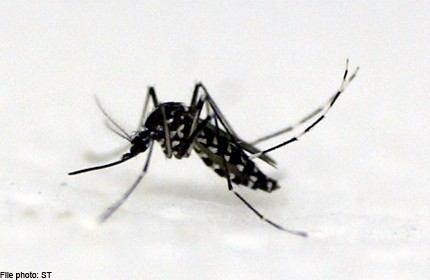Breakthrough in Chikungunya fever by A*STAR researchers


SINGAPORE - Scientists at Agency for Science, Technology and Research's (A*STAR's) Singapore Immunology Network (SIgN) have made breakthroughs in Chikungunya research, discovering a direct biomarker which serves as an early and accurate prognosis of patients who have a higher risk of the more severe form of Chikungunya fever (CHIKF).
CHIKF is caused by the Chikungunya virus (CHIKV), which is a mosquito-borne, infectious disease endemic to Southeast Asia and Africa.
Since its re-emergence in 2005, CHIKV infection has spread to nearly 20 countries to infect millions. Singapore was hit twice by Chikungunya fever outbreaks in January and August 2008.
CHIKV infection is characterised by an abrupt onset of fever frequently accompanied by severe muscle and joint pains, said A*STAR
Though most patients recover fully within a week, in severe cases, the joint pains may persist for months or even years. For individuals with a weak immune system, the disease can result in death.
With no clinically-approved vaccine or treatment for Chikungunya fever, it remains a worrying public health problem, said the research centre.
However, the latest breakthrough means that doctors can now quickly and accurately identify patients at risk, facilitating a more targeted treatment and clinical care at the onset of the disease.
Dr Lisa Ng, Principal Investigator of the Chikungunya research group at SIgN, led the team in studying how the human body responds to CHIKV infection.
The team, in collaboration with Professor Leo Yee Sin and Dr Angela Chow, clinician-scientists from the Communicable Disease Centre (CDC) at Tan Tock Seng Hospital, conducted a comprehensive study on the antibody response against CHIKV in patients.
They discovered that patients who produce high levels of a naturally-acquired antibody at the onset of the disease are protected from the more severe form of Chikungunya fever, characterised by persistent joint pains.
On the other hand, patients with a delayed response generally had less acute symptoms at the start, but were more susceptible to chronic debilitating joint pains at later stage of the disease.
Hence, these antibodies were identified to serve as a specific biomarker of patients with increased risk of the severe form of the disease.
The team also found that a very small segment of the Chikungunya viral protein was able to induce the natural antibiotic protective response. They found that mice vaccinated with the protein were protected against the infection.
This finding may spell a new effective Chikungunya vaccine.
Dr Ng said that as long-term treatment required for the chronic joint pain in Chikungunya-infected patients places social and economic burden for the both patients and the public healthcare system, the discovery marks a significant step towards developing 'new weapons' to tackle Chikungunya more effectively.
yamadak@sph.com.sg